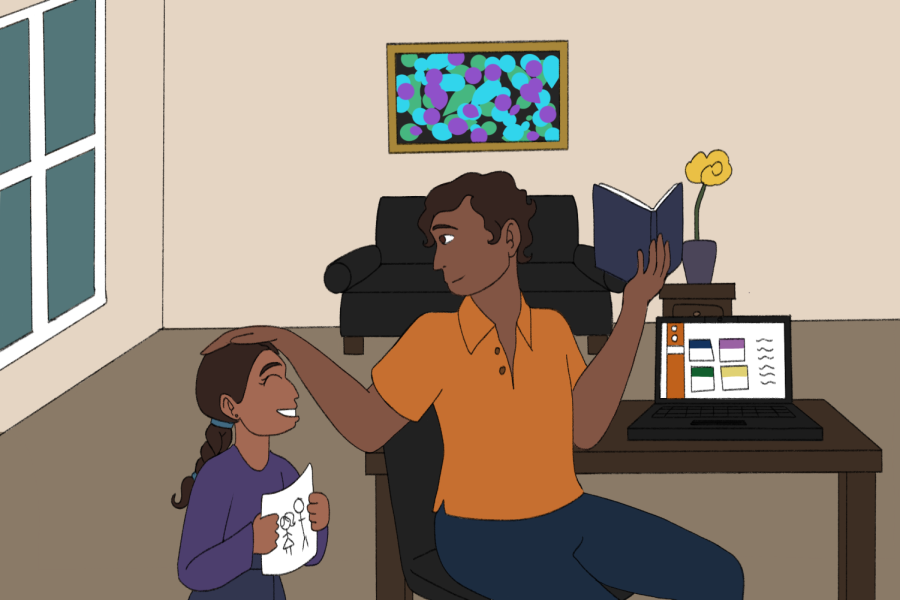Online classes make education more accessible for student parents
October 19, 2022
The term “college student” typically evokes an image of young 18- to 22-year-olds. However, about 14% of UT’s undergraduate population is over the age of 22. On a national scale, more than one-fifth of college students are parents.
Student parents are an active and important part of our campus, but unlike many of their peers, prefer online classes to in-person learning. For these students, online learning promotes financial stability and academic success.
Kayla Edwards, a social work junior, is a mom of four kids ranging from ages 4 to 13.
“I really enjoyed when it was COVID, and all my classes were online because again, if one of my kids was sick, I’m not having to miss class.” Edwards said. “I can sit there and comfort them while I’m online with my camera off. It’s a lot less pressure and a lot less stress when there’s online availability.”
Edwards, who juggles work, school and parenthood at the same time, views online learning as a way to make higher education more manageable. She does not have to miss out on class time or caring for her children, because she can do both at the same time.
Online learning is not for everyone. Virtual classes can feel impersonal and boring — sometimes even pointless. Many college students need the social, physical, emotional and academic support of staff and classmates. However, for student parents, online classes are a way for them to be equally engaged in their home life and school work.
Hanyue Zhang, a social work senior and mom to a 5-year-old, is forced to commute all the way from San Antonio for her in-person classes. Zhang prefers online classes despite the benefits in-person learning provides.
“It’s not just my decision. … It’s affecting my whole family,” Zhang said. “Although, I don’t mind the drive up there and enjoy my time on the way to school … (it is) a lot of inconvenience for my family.”
The increase in online classes in a post-COVID-19 world has opened new doors, opportunities and economic stability for students like Edwards and Zhang.
Both students expressed a similar sentiment — their kids are part of the reason why they are in school. Edwards wants to lead by example and show her children that they can accomplish their goals. Zhang wants to make the world a safer place for her daughter to grow up.
“I think (college is) one of those things that’s much like parenthood where it is challenging,” Edwards said. “But the duality is that it’s also one of the most beautiful and beneficial things to a person’s soul.”
Edwards truly values her education, and online classes don’t impact the level of education she’s getting. With parenthood being her top priority, attending an in-person class is not always possible.
Choice is key. There is copious evidence that online learning strains students’ mental health. Yet for others, it’s the stress of getting to school, paying for parking, finding care for their children and balancing work that takes the biggest toll.
Online classes allow for more flexibility and less of the financial burden of transportation and child care. This perspective should be recognized as critical information in the ongoing conversation about the future of online learning.
Lawrence is a social work senior from Austin, Texas.















